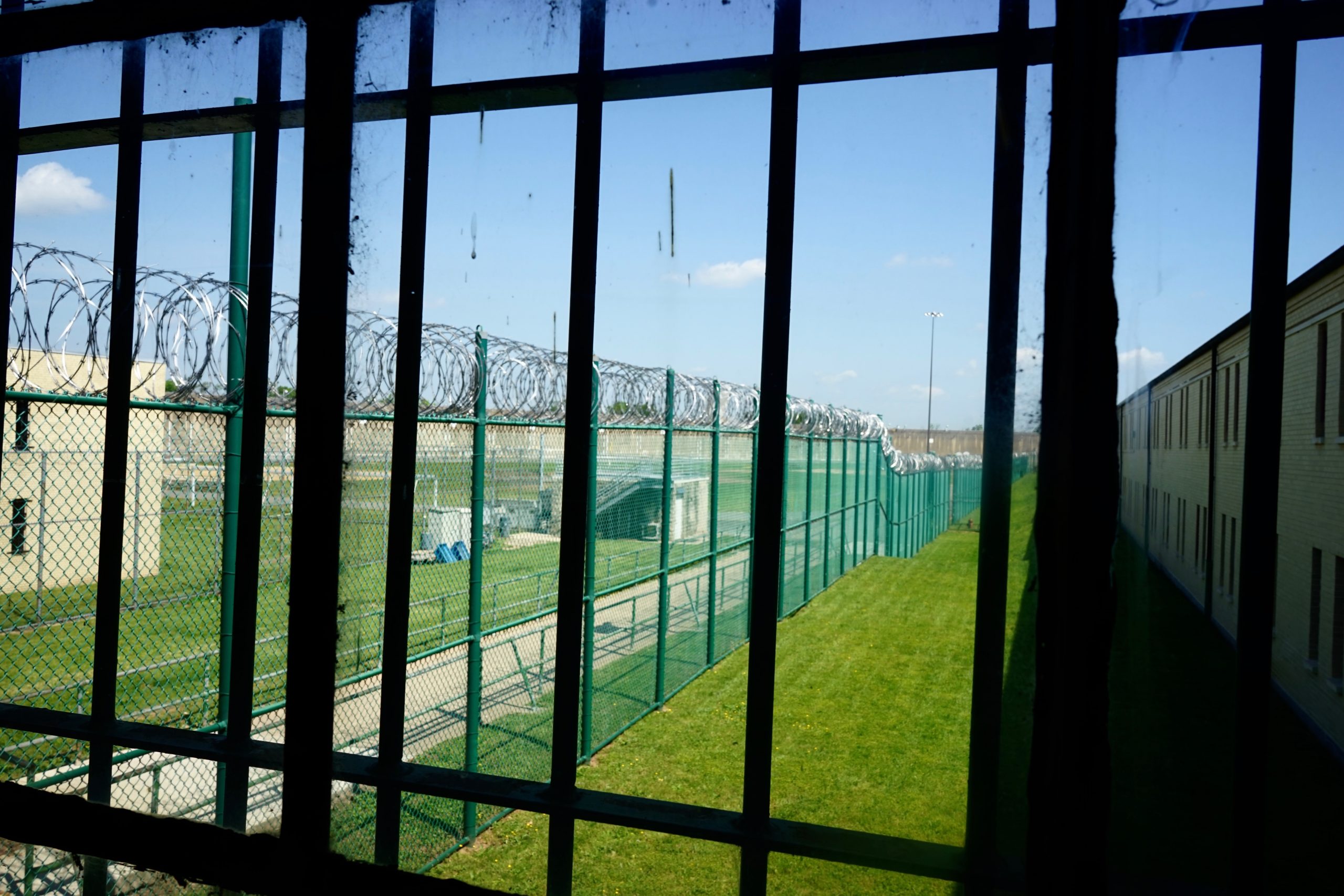Prison life is a world many of us only glimpse through movies or documentaries, but for millions globally, it's a daily reality. The lives and rights of prisoners are more than just statistics—they're human stories filled with challenges, resilience, and the pursuit of justice. If you're curious about what it really means to understand the lives and rights of prisoners, you're in the right place. This guide dives deep into the complexities of incarceration, the rights that prisoners deserve, and the reforms needed to create a more humane system.
Let’s be real here. When we think about prisoners, our minds often jump to stereotypes or dramatic portrayals on TV. But the truth? It’s way more complicated. Millions of people worldwide are locked up, and their rights are often overlooked or misunderstood. This isn’t just a legal issue—it’s a human issue. And yeah, it’s time we start paying attention.
Whether you’re a student, a concerned citizen, or someone looking to make a difference, this guide will give you the tools and knowledge to understand the lives and rights of prisoners. So buckle up because we’re about to dive into some heavy but important stuff. Trust me, it’s worth it.
Why Understanding Prisoner Rights Matters
First things first, why should you care about the rights of prisoners? It’s a fair question. But here’s the thing: prisoners are still people. They’ve made mistakes, sure, but that doesn’t mean they lose their humanity. The way we treat those behind bars says a lot about the kind of society we are.
Prisoner rights matter because they directly impact public safety, rehabilitation, and even the economy. When prisoners are treated with dignity and given opportunities for education or therapy, they’re less likely to reoffend. And that’s good for everyone. Plus, if we ignore their rights, we risk creating a system that perpetuates injustice instead of justice.
Breaking Down the Stereotypes
Let’s talk about the stereotypes. We’ve all seen the movies where prisoners are either super dangerous or super sad. But the truth is, there’s no one-size-fits-all when it comes to incarceration. Prisoners come from all walks of life, and their stories are as diverse as the world outside the walls.
- Some prisoners are there for violent crimes, but others are there for non-violent offenses like drug possession.
- Many have mental health issues or addiction problems that weren’t properly addressed before they entered the system.
- And let’s not forget about wrongful convictions. Yep, innocent people end up in prison too.
So the next time you hear someone say, “They’re just criminals,” remember that there’s always more to the story.
What Do Prisoners’ Rights Entail?
Alright, so what exactly are the rights of prisoners? It’s not just about having a bed and three meals a day (though those are important). Prisoner rights cover a wide range of areas, from basic human dignity to access to healthcare and education. Let’s break it down:
Basic Human Rights
At its core, prisoner rights are about respecting their humanity. This means no torture, no cruel or degrading treatment, and no excessive punishment. Sounds obvious, right? Unfortunately, it’s not always the case. Many prisoners around the world face inhumane conditions, from overcrowding to lack of proper sanitation.
But it’s not just about physical conditions. Emotional and psychological well-being matter too. Prisoners should have access to counseling, religious practices, and contact with family. Isolation can be just as harmful as physical abuse.
Legal Rights
Legal rights are another crucial aspect of prisoner rights. This includes the right to a fair trial, the right to appeal, and the right to legal representation. It’s important to note that these rights don’t disappear just because someone is in prison. In fact, they’re often more important than ever.
Additionally, prisoners have the right to file grievances if they believe their rights are being violated. This is a key part of holding the system accountable.
The Challenges Faced by Prisoners
Now, let’s talk about the challenges. Life in prison isn’t easy, and it’s not just about the obvious stuff like locked doors and limited freedom. There are a ton of challenges that prisoners face on a daily basis, many of which can have long-term effects.
Overcrowding and Poor Conditions
One of the biggest challenges is overcrowding. Many prisons are packed way beyond capacity, leading to poor living conditions. This can result in health issues, increased violence, and a lack of resources for things like education or recreation.
Poor sanitation is another big issue. Imagine living in a place where the toilets don’t work properly or where you can’t take a shower regularly. It’s not just uncomfortable—it’s undignified.
Mental Health and Addiction
Mental health is a huge challenge for many prisoners. The stress of being locked up, combined with pre-existing conditions, can lead to serious mental health issues. Unfortunately, many prisons lack the resources to provide adequate mental health care.
Addiction is another major problem. Many prisoners struggle with substance abuse, and without proper treatment, it’s hard for them to break the cycle.
Rehabilitation vs Punishment
Here’s a question that’s been debated for years: should the focus of the prison system be on punishment or rehabilitation? The answer isn’t simple, but most experts agree that rehabilitation is the better approach.
Rehabilitation focuses on helping prisoners turn their lives around. This can include education programs, job training, and therapy. When prisoners are given the tools they need to succeed outside of prison, they’re less likely to reoffend.
Punishment, on the other hand, often leads to more harm than good. Sure, it might make people feel like justice is being served, but it doesn’t address the root causes of crime. And let’s be real—if someone’s locked up forever, they’re not exactly getting a chance to prove they’ve changed.
Education as a Key to Rehabilitation
One of the most effective tools for rehabilitation is education. Studies have shown that prisoners who participate in education programs are significantly less likely to reoffend. Whether it’s learning a trade, getting a GED, or even pursuing higher education, education opens doors for prisoners.
But here’s the catch: not all prisons offer these programs. And even when they do, there’s often a lack of funding or resources. It’s a shame because education could make such a big difference in the lives of prisoners and the communities they return to.
The Role of Society
Let’s be honest: the prison system doesn’t exist in a vacuum. It’s deeply connected to the society we live in. That means we all have a role to play in understanding and improving the lives of prisoners.
Community Support
Community support is crucial for prisoners, both while they’re incarcerated and after they’re released. This can take many forms, from volunteer programs to job training initiatives. When prisoners feel like they have a support system outside of prison, they’re more likely to succeed.
But it’s not just about supporting prisoners. It’s also about changing the way we think about them. Instead of seeing them as “others,” we need to recognize that they’re part of our community. And yeah, that means giving them a second chance.
Policy and Advocacy
Advocacy is another important way to support prisoners. This can involve pushing for policy changes, such as reducing mandatory minimum sentences or increasing funding for rehabilitation programs. It can also involve supporting organizations that work directly with prisoners and their families.
And let’s not forget about voting. The policies that affect prisoners are often decided by elected officials. So if you want to make a difference, get out there and vote for candidates who prioritize criminal justice reform.
Global Perspectives on Prisoner Rights
It’s worth noting that the way prisoners are treated varies widely around the world. Some countries have progressive systems that focus on rehabilitation, while others rely heavily on punishment. Let’s take a look at a few examples:
Scandinavian Model
Scandinavian countries like Norway are often held up as examples of successful prison systems. Their focus on rehabilitation has led to some of the lowest recidivism rates in the world. In Norway, for example, prisoners live in conditions that resemble normal life as much as possible. They have access to education, job training, and even private rooms.
Now, I know what you’re thinking—this sounds expensive. And yeah, it is. But the results speak for themselves. When prisoners are treated with dignity and given opportunities to succeed, everyone benefits.
U.S. System
On the other hand, the U.S. prison system is often criticized for its focus on punishment over rehabilitation. The U.S. has one of the highest incarceration rates in the world, and many prisoners face overcrowded conditions and limited access to resources. There’s also the issue of private prisons, which some argue prioritize profit over prisoner well-being.
But there are signs of change. Many states are implementing reforms aimed at reducing incarceration rates and improving conditions for prisoners. It’s a slow process, but it’s happening.
How You Can Make a Difference
So, what can you do to help improve the lives of prisoners? There are plenty of ways to get involved, whether you’re looking to volunteer, advocate, or simply educate yourself.
Volunteer Opportunities
One of the best ways to make a difference is by volunteering. Many organizations offer programs that allow volunteers to work directly with prisoners, whether it’s teaching classes, providing counseling, or helping with job training. It’s a great way to give back and make a real impact.
Advocacy and Awareness
Advocacy is another powerful tool. You can join or support organizations that work on criminal justice reform, attend rallies or protests, or even start your own awareness campaign. The more people know about the issues facing prisoners, the more likely they are to take action.
Education and Resources
Finally, don’t underestimate the power of education. Whether it’s reading books, watching documentaries, or attending lectures, learning about the prison system can help you become a more informed advocate. And who knows? You might even inspire others to get involved too.
Conclusion
Alright, so we’ve covered a lot of ground here. From understanding the basics of prisoner rights to exploring the challenges they face and the ways we can make a difference, this guide has given you a comprehensive look at the lives and rights of prisoners. But here’s the thing: this isn’t just information—it’s a call to action.
Prisoners are people too, and they deserve to be treated with dignity and respect. By advocating for reform, supporting rehabilitation programs, and changing the way we think about incarceration, we can create a more just and humane society. So what are you waiting for? Get out there and make a difference!
And hey, don’t forget to share this article with your friends. The more people who understand the issues facing prisoners, the better chance we have of making real change. Thanks for reading, and let’s keep the conversation going!
Table of Contents


